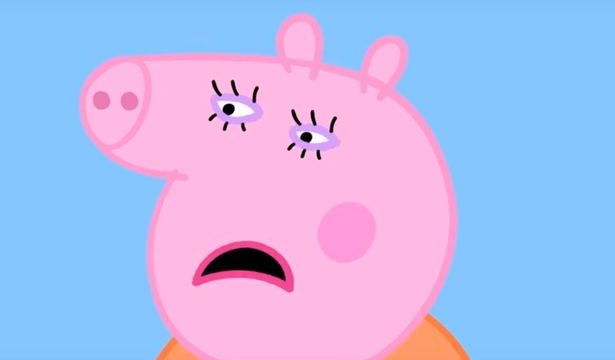A friend of mine recently took his kid to his first stage show. It was Peppa Pig, a show some of you have spoken positively of that really bothers me. My friend mentioned that he thought of the show as being intelligent and so forth, which made me wonder again why so many people like it and I don’t. And one of the things that struck me, and this is true of a lot of the stuff my kid watches, is that Peppa’s parents are Daddy and Mummy. This is just their names. Everyone in the story is shoehorned into one role except the rabbit that does everything left to be done.
This is not unusual in children’s stories, including television. I think it’s supposed to represent the idea that, to children, that is literally their parent’s name. And it’s true that Simon took some time to recognize that my name isn’t “Mom.” He literally argued with me about it at one point. However, I’ve long believed that this is because he seldom hears people call me by name. Whereas I’ve called his father “Graham” in his hearing his whole life, and he’s called him that off and on himself as long as he’s been calling his father anything. This isn’t just Simon; many of my friends who are parents have similar stories, including children who had to be forced to call their fathers—it’s usually fathers, for whatever reason—by “dad” or “papa” or whatever again.
Kids are younger than you think when they start recognizing their parents as people with their own interests. Simon is four, and he routinely explains to me that his father or I (or his baby sister) like whatever show he’s watching, or don’t. Oh, he’s not always right, but he explains it. Various people are literally known to him as “Mom’s friends.” He doesn’t necessarily know their names, but he knows they’re important to me. He knows when his father’s at work, including different kinds of work. He knows all sorts of things about us as people.
Oh, Simon’s a smart kid, but it isn’t just that, either. I think most kids know more about their parents as people than is shown in most children’s television. I get that part of the issue is to avoid complicating the plot too much, but this hardly works as an explanation on the shows that have literally dozens of characters. It wouldn’t be too difficult to give Daniel Tiger’s parents names. (There are other characters on the show who have first names, but they were given them by Fred Rogers before Daniel Tiger’s Neighborhood first aired.) Even if Daniel never uses that name, the other adults could.
Most of the time, too, when the parents don’t have names, the mothers don’t have jobs. Or friends, aside from the mothers of the other kids. Or any other outside interests. Mummy Pig is a mother. (According to Wikipedia, she works from home, but it’s easy to miss.) The fathers go to work; the child may or may not know what the father does exactly, but it’s at least usually clear where the father works. And the mother stays home. Certainly she doesn’t go out alone. If she goes out, she’s always with the father.
I love my kids. Simon and Irene are great. I love spending time with them. I love being a mom. But I think one of the things that bothers me about Peppa Pig, and Daniel Tiger’s Neighborhood, and a few other shows my son watches, is that they assume that it’s all there is to me. The shows I like with families tend to be the ones where the parents are people, too. The Bear isn’t Masha’s parent, but he’s a parental figure—who prefers to watch his sports on TV, not her cartoons, and gets frustrated and doesn’t want to deal with her and wants to woo the Female Bear. He doesn’t have a name, I grant you, but he’s a bear. Any name he’d have, she’d’ve given him anyway.

